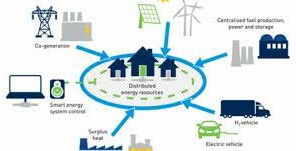
About WasteHeatSES
Integration of waste (also called excess or surplus) heat flows into the district heating systems have been identified as a significant complementary driver on the road to climate neutrality by…
Integration of waste (also called excess or surplus) heat flows into the district heating systems have been identified as a significant complementary driver on the road to climate neutrality by delivering primary energy savings. Unused heat flows could partly cover heat demand if suitable technical and organizational conditions have been met. There have been previous studies on waste heat potential assessment and the possibility for heat load coverage. However, the research gap still exists regarding the conditions for broader use of waste heat flows if the elements of the smart energy system are integrated into the energy sector (including smart heat meters, thermal storage systems, heat pumps, and low-temperature heating networks). Furthermore, the necessity to valorize waste heat from industrial objects, energy production facilities, data centers, supermarkets, wastewater treatment plants, and other heat sources at the regional scale has been emphasized in the existing legislative documents of the European Union. Therefore, potential waste heat sources in the Baltic-Nordic region will be valorized within the proposed project through in-depth national potential assessment, technical simulation, and cost-benefit analysis.
The exergy cost method will be applied to valorizing different waste heat flows by assigning an economical cost value, representing the cost of deploying a certain exergy flow through every transformation process. Different added value factors will be considered, including technical parameters of waste heat sources, used transmission and storage technologies, heat sink requirements. Based on technical and economic modeling results, the project aims to develop a decision-making model for relevant stakeholders and recommendations on suitable conditions for waste heat integration into the future smart energy systems in Nordic and Baltic countries from the legislative organizational and business perspective.
By investigating diverse cultural and geographical contexts in Baltic-Nordic regions, this project will significantly increase the flexibility and resilience of urban energy systems and promote the new local energy market. Furthermore, this project will strengthen the Baltic-Nordic knowledge in the areas of energy-efficient energy systems. It will promote the best technical and economic solution and develop strategies for the higher education of next-generation researchers in these regions to tackle future challenges and developments.

